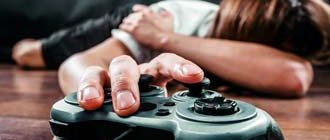A story of psychological suffering, heartache, as old as the world.
The torments that “tormented the soul” and did not give the opportunity to “sigh and straighten their shoulders,” forcing people to plunge into the abyss of their experiences, are remembered and described by classics of literature. For us, pain becomes a necessary attribute of all stages of life development. In fact, it is true. Pain is a necessary and important link in an individual’s maturation and development as a person. The peculiarity of the difference between mental (psychological) pain and physical pain is manifested in a person’s delayed response and “work” with it. When something in the body begins to hurt, a signal is triggered that some organ or system is experiencing a failure in the program and needs help and support. In most cases, a person seeks to treat himself and correct the functioning of the body’s internal system: visits to doctors’ offices and raids on pharmacies in search of medicines begin. A person has a clear goal: to recover as soon as possible and return to his usual way of life. The mental pain is different.
About mental pain and how we treat it
From the position of the average person, this kind of pain will be perceived through the phrases: “the soul hurts,” “there is a stone in the chest,” “heavy thoughts.” We see that in fact, people draw the concept of mental pain mainly from folk wisdom, their own experience and the experience of previous generations. However, on the practical side of the issue, how you can help yourself more professionally, it turns out that this knowledge is not enough. If everything is clear with physical pain, since there is a clear algorithm for action to cure the disease, then internal pain is more difficult and difficult to cope with. Often we can observe the picture that a person in such a situation does not know at all what to do and how to help himself cope with something that is “broken inside.” He remains blind to his needs, because pain is precisely about the need for something (attention, self-care). A person “keeps” the pain within himself and can continue to drift in his condition, in the hope that everything will “work itself out” and “time will heal.”
Everyone hurts differently
At all times, doctors have been looking for magical remedies to get rid of pain. Only for a long time it was believed that pain is perceived equally by all people, because it depends only on the strength of the physical impact. If, say, two people are pricked with a needle with the same force, they should experience the same sensations. But over time, it became obvious: subjective experience plays an important role in how acute the pain seems.
Nowadays, medicine and psychology use the definition of pain proposed by the International Association for the Study of Pain in the seventies of the last century: “Pain is an unpleasant sensory and emotional experience associated with actual or potential tissue damage or described in terms of such damage.” In other words, objectively everything may be fine with us, but emotionally it’s already painful. Doesn't this mean that each of us can understand something different by the word “pain”?
Dr. Salima Meghani from the University of Pennsylvania argues that the degree of pain depends on the “lens” of perception that is individual for each patient. The experience of pain is refracted through such seemingly distant things from pain as income, level of education, place of residence, cultural stereotypes, and profession.
For example, the accessibility and quality of medical care, the choice of profession and the need to engage in heavy physical labor, and the severity of the body’s stress response often depend on a person’s socioeconomic status. Consequently, people from low SES and vulnerable populations will experience pain more often and more severely, and will seek medical attention less often due to fear of facing neglect and discriminatory attitudes.
Moreover, life experiences and beliefs about pain can lead a person to hide their pain from others, and sometimes from themselves, as much as possible. “I can’t look weak”, “If I show that I’m in pain, they will humiliate me and take advantage of me”, “Until I collapse without strength, I must endure the pain and continue to work” - such thoughts very often aggravate the situation and prevent pain to perform its important function.
How to cope with mental pain: how pain can be useful to us
If through physical pain the body transmits to us signals of “malfunction” and serves as a reminder that we are still alive, it is a mistake to assume that psychological pain has other properties. Mental pain carries the same function, more subtle and sensual - informing us about the psychological state of the body. We may underestimate psychological comfort and the rules of mental hygiene, however, when the situation becomes critical for our body, the work of consciousness and the processes of the unconscious are turned on. The body begins to actively modernize itself and adapt to new environmental conditions.
What is psychological pain for? As noted above, these are important accents of the life scenario. It is the consequences of experiencing “crises”, “pain points” of our life path that shape the further development of a person. Experiencing mental pain is not an easy experience and is perceived negatively by many. However, mental pain also has a number of advantages, since it is a “signal” about possible positive changes in your personality. Among the positive aspects of experiencing pain are the following.
Mental pain as initiation and acquisition of new experience
Thanks to psychological discomfort, every time we find ourselves in a choice: move on or stay in place. Pain can be considered as a rite that will give impetus to the transition to a new stage of development, “initiation” into a more mature life. Any mental pain, for example: the breakup of a long-term relationship or short-term relationship, loss of a job or a quarrel with loved ones, is intended to make us wiser and adapt to the situation.
Psychological pain is a way of adapting to new conditions, acquisition or loss
Every crisis we go through is experienced with pain. When we find ourselves “at the bottom” of sadness and powerlessness, there is only one way to move forward - to rise up and develop. Mental pain can be associated not only with the loss of an object of affection: a break in a relationship, the death of a loved one, but also with the acquisition of new knowledge and experience of failure, acceptance of oneself and one’s shortcomings. The severance of a relationship is accompanied by the loss of a whole range of contexts for joint activities: walking, running a household, organizing and spending leisure time, joint professional activities, doing business, and much more. If the relationship with such a person was very significant for us or was characterized as codependent (when the boundary between “I” was erased and a “we” was created), the loss of such a relationship can entail an intense experience of psychological pain. Adapting to new conditions often causes discomfort, but thanks to this we can move on.
Pain is a reaction to violation of personal boundaries
Violation of personal boundaries, integrity and harmony of a person is also accompanied by psychological discomfort and loss of balance. We can lose something valuable not only in what is realized with the help of other people, but also in ourselves. After experiences we always become different, our attitude and perception change. Thanks to the intensity of pain, we can assess the degree of value of something significant to us.
If you compare the pain to the storm, then you may not know how you found yourself in the epicenter of these events, even how you got out safely, you will only know for sure, only one thing - that you will never again be the same person who entered the storm. You will be different. Pain is about growth and development .
Pain is a great opportunity to “hear” and “listen” to yourself
Mental pain is a great way to see your weaknesses and strengths, get to know your capabilities better, look at yourself in a new way, praise and take care of yourself, accept yourself and thank yourself; improve and outline a vector for further development. Thanks to crises we grow. Thanks to them, we improve and change. Therefore, it is not worth considering mental pain purely as a negative phenomenon. It's always an opportunity to improve yourself. If you change your attitude towards pain as a factor necessary for personal development, the very perception and experience of psychological discomfort will change. It is important to remember that pain loves when people talk about it and express their emotions. The more and more intensely you speak out, the more “productive” your work with pain will be. Don't keep her to yourself and don't work with her one on one! Share what is on your mind, what you think about and what you worry about with others.
We constantly detect plagiarism on our materials without providing a clickable follow link to them.
In this case, without warning, we turn to Google DMCA , which leads to pessimization of the plagiarist. On the contrary, we welcome the popularization of our materials, but with the obligatory active follow link to this page psyhosoma.com/dushevnaya-bol-i-ee-vliyanie-na-lichnost/ .
Pain and its causes in alphabetical order:
psychological pain
Psychological pain is the most severe and destructive pain.
Many people cannot stand it - some become drunkards, others commit suicide. In essence, the feeling of psychological pain is created by an attempt by consciousness to separate from itself, by splitting a single consciousness into duality: on the one hand, a speculative-observing entity that tries to avoid, distort or suppress the denied feeling, and on the other hand, the observed feeling itself. If the cause of pain is dual consciousness, then only unified consciousness can relieve you of it. In unity all pain disappears.
What diseases cause psychological pain:
Causes of psychological pain: – The cause of psychological pain may be in the past, for example, mental trauma, difficult memories, bitterness of loss. – The reason may lie in the present: the directly occurring situation outside and current processes within the human psyche. – The reason may be related to the future, for example, expectations of bad things, hypothetical fears, worries about possible events and consequences.
Nature created these defenses for immediate psychological self-help (approximately as a response to physical pain, illness or injury in the body). However, psychological defenses only protect, but do not solve the problem and do not provide help; they help hold out until help comes.
Psychological pain has important latent potential; and here there is no need to rush to save the patient from his suffering at any cost. The potential of psychological pain is twofold: firstly, suffering can support the patient’s motivation to psychologically work through his painful experiences, and secondly, suffering always has its own psychological meaning, its own meaning. And it is very important to discover this meaning by carrying out very necessary, once apparently neurotically delayed mental work.
Which doctors should you contact if psychological pain occurs:
Are you experiencing psychological pain? Do you want to know more detailed information or do you need an inspection? You can make an appointment with the doctor Euro lab is always at your service! The best doctors will examine you, study external signs and help you identify the disease by symptoms, advise you and provide the necessary assistance. You can also call a doctor at home . The Euro lab clinic is open for you around the clock.
How to contact the clinic: Phone number of our clinic in Kiev: (+38 (multi-channel). The clinic secretary will select a convenient day and time for you to visit the doctor. Our coordinates and directions are listed here. Look in more detail about all the clinic’s services on its personal page.
If you have previously performed any tests, be sure to take their results to a consultation with your doctor. If the studies have not been performed, we will do everything necessary in our clinic or with our colleagues in other clinics.
Do you have psychological pain? It is necessary to take a very careful approach to your overall health. People do not pay enough attention to the symptoms of diseases and do not realize that these diseases can be life-threatening. There are many diseases that at first do not manifest themselves in our body, but in the end it turns out that, unfortunately, it is too late to treat them. Each disease has its own specific signs, characteristic external manifestations - the so-called symptoms of the disease . Identifying symptoms is the first step in diagnosing diseases in general. be examined by a doctor several times a year in order not only to prevent a terrible disease, but also to maintain a healthy spirit in the body and the organism as a whole.
If you want to see a doctor, use the online consultation section, perhaps you will find answers to your questions there and read tips on caring for yourself . If you are interested in reviews about clinics and doctors, try to find the information you need on the forum. Also register on the Eurolab medical portal to be constantly aware of the latest news and information updates on the site, which will be automatically sent to you by email.
Pain
Film "Arnold"
A man understands the necessity of pain and must go through it.
Pain is a sensation from pain receptors, one of the basic innate sensations, along with the sense of touch, taste, temperature and muscle sensations.
Pain in the body can be dull and sharp, strong and weak, sick and healthy, real and phantom, generated by the body and having psychosomatic roots. A special type of pain is a headache. The psychological type of pain is mental pain. Cm.
Pain is not just a primary sensation, it is always additionally some kind of interpretation. If your muscles ache after a hard workout, you may appreciate the pain as a sign that the workout was successful. The pain of childbirth can be much stronger than the pain of any illness, but the latter is much more painful because the brain perceives these two pains differently - one leads to the continuation of life, the other can destroy it.
At the same time, what people more often call “It hurts!” and what gives rise to unhappy faces and whining is rather an idea to attract attention and to make people feel sorry for you. The experience of “Oh it hurts” is different from just the feeling of pain.
How to deal with pain?
Pain should be treated with respect, like a good old helper. There is not enough intelligence for everything and everyone, and in order to protect the body, pain turns on. What does pain do? Pain warns the owner about dangerous (extra-strong, destructive) effects for a given organ; in case of damage, it triggers a restructuring of the body’s forces for the fastest restoration of the damaged organ.
Blood drains from unnecessary organs and flows to the necessary ones, to the sick. Athletes use this - they train to the point of pain, pushing the body to grow the necessary muscles.
In addition, pain triggers a restructuring of behavior towards instinctive greater care and, if possible, avoidance of repeated painful effects,
If a finger is cut or bruised, a ligament is pulled, or a bone is cracked, it hurts. You instinctively take more care of the sore spot, and rightly so. A wound is an open gate for infection; something damaged (or inflamed for other reasons) should not be torn further. When you limp on your sore leg, the pain reminds you not to load it or to load it strictly in doses, no more than a certain threshold. No matter how bad your head and memory are, you will think three times whether in this state it is worth giving yourself extreme loads (jumping, running), soaking this place with water... If there was no pain, it would be easy to forget about all this, but the pain will remind you of itself even on distant approaches.
On the other hand, for a strong person, pain is only a signal, it is only a sensation. And if there is something more important in life than taking care of certain parts of the body, strong people do what they must, not paying attention to the pain. At least, doing everything that a strong person can do for this.
What to do when it hurts?
When it hurts, the sequence of actions is as follows: eliminate pain, relieve pain, use pain, endure pain. And then - think. Cm.











